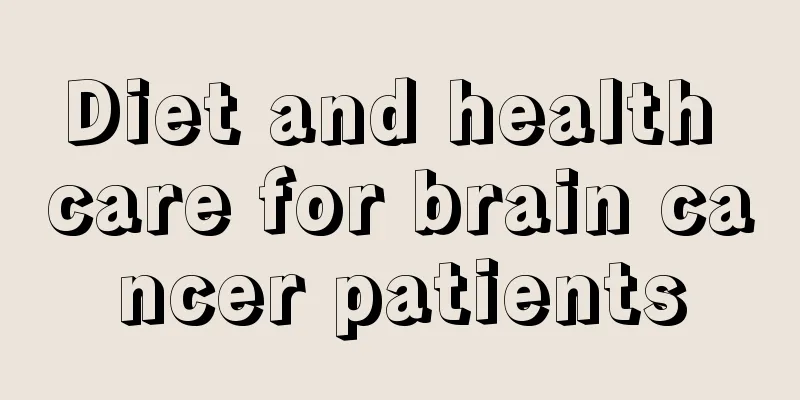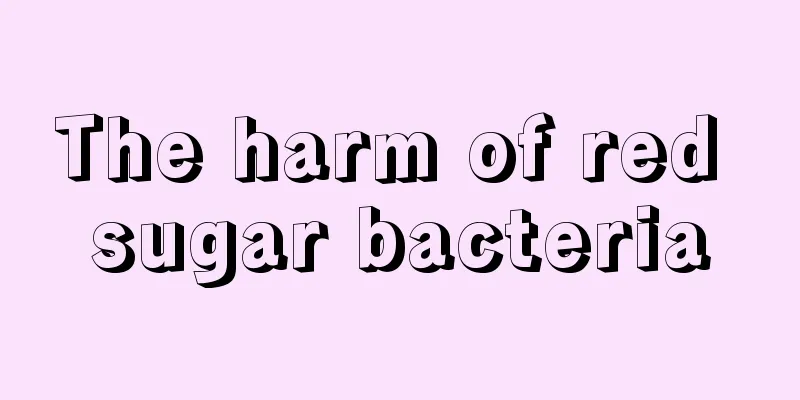The impact of high fever convulsions on intelligence

|
High fever is a relatively dangerous disease for children and is also a particularly common disease. Although high fever generally does not affect the child's brain development, if the fever is caused by encephalitis, it will have a certain impact on the child's intelligence and brain development. Therefore, parents should not take children's fever lightly. Below we will introduce you to the relevant knowledge about high fever convulsions in detail. 1. Does a child's fever and convulsions affect the brain? Hyperthermia convulsions are a common emergency in babies. They occur when the baby's body temperature is higher than 39°C in the early stages of respiratory infection or other infectious diseases. Among them, high fever convulsions caused by upper respiratory tract infection are the most common. Generally, when the child's body temperature rises sharply, the higher the temperature, the more likely the attack is. It manifests as sudden onset of generalized or localized muscle rigidity and clonic convulsions, most of which are accompanied by impaired consciousness. Generally, it will not affect brain development, unless the fever is caused by encephalitis, etc., which will affect brain development. Generally, the prognosis of febrile convulsions is good. Febrile convulsions are a common disease in pediatrics. The incidence of convulsions in children is due to the incomplete development of children's brains and poor ability to analyze and identify stimuli. Weak stimulation can cause abnormal discharge of motor neurons in the brain and cause convulsions. Simple febrile seizures have a good long-term prognosis and have no effect on intelligence, learning, or behavior. As age increases and the brain develops gradually, febrile convulsions generally no longer occur. However, usually a febrile convulsion will not occur twice within 24 hours. If there are multiple convulsions, complex febrile convulsions should be considered and should be taken seriously. First, the possibility of intracranial infection should be ruled out. Secondly, an EEG examination should be paid attention to rule out the possibility of epilepsy. If the above two situations are excluded, the problem is generally not serious. 2. What to do if your child has a fever and convulsions 1. Go to the hospital If the seizure lasts more than 4 minutes, you should go to the hospital immediately. If it is less than 4 minutes, you can wait until the child feels better and rests for a while before going to the hospital. 2. Don’t open your mouth when lying flat on your back or side. When your baby has a seizure, lay him flat on his back and on his side to help him breathe more easily and prevent saliva or vomit from blocking his trachea. Do not try to pry your child's mouth open; a child who is having a seizure due to a fever or other cause is not in danger of biting his tongue. 3. Keep the indoor temperature suitable Maintain the room temperature between 25 and 27 degrees Celsius. You can place the child in an air-conditioned room or use an electric fan to blow around him/her to slowly lower the body temperature, which will make the child feel more comfortable. But if the limbs are cold and the patient is shivering violently, it means that the patient needs warmth, so he should be covered with a blanket. 4. Take off your clothes If your baby's limbs, hands and feet are warm and he is sweating all over, it means he needs to dissipate heat and he can wear less clothes. 5. Wipe with warm water During the period when the baby's convulsion is relieved, be sure to take cooling measures. Undress your baby and rub his whole body with a warm towel. This will dilate the blood vessels in the baby's skin and release body energy. In addition, when water vapor evaporates from the body surface, it will also absorb body heat. 6. Drink plenty of water To help sweating and prevent dehydration. Water has the function of regulating temperature, which can lower body temperature and replenish water lost in the baby's body. |
<<: Can I drink yogurt after eating apricots
>>: Blisters suddenly appeared on my feet
Recommend
What does nasopharyngeal squamous cell carcinoma mean
According to what you said, nasopharyngeal carcin...
What should I do if I always feel sleepy during work
If you are caught dozing off during the daytime, ...
How to wear ear clips
In our lives, many women like to wear earrings be...
How to diagnose advanced lung cancer? 4 correct methods for diagnosing lung cancer
Lung cancer is a very common cancer, and it has a...
Is pancreatic cancer treatment expensive?
Pancreatic cancer is one of the most life-threate...
How to discharge milk from accessory breast
Many female friends have accessory breasts, which...
Pathological staging of prostate cancer
The microscopic diagnosis of prostate adenocarcin...
Why does nasopharyngeal cancer occur? What should we pay attention to in our diet for nasopharyngeal cancer
What should be paid attention to in the diet of n...
What is epilepsy
When it comes to epilepsy, some friends may not k...
How to make mosquito repellent sachets?
Summer is the season when mosquitoes are rampant....
What fruits to eat to prevent bladder cancer
Fruits can prevent many diseases and provide the ...
What is the best treatment for colon cancer
According to current medical knowledge, cancer is...
Is the lung cancer gene inherited?
Is the lung cancer gene hereditary? Lung cancer i...
What is the fastest way to treat anal itching?
In daily life, anal itching is a common itching d...
What to eat to replenish kidney yin deficiency the fastest
Kidney Yin deficiency is a disease problem that i...









